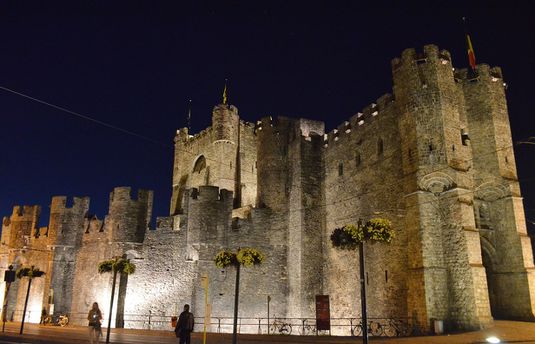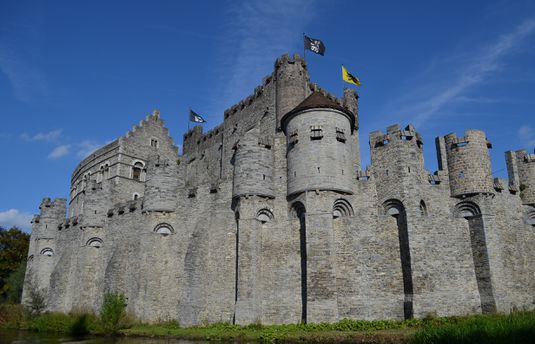Difference between revisions of "IS427:AY1314T1 Europe (G1) - Cities: Ghent"
Jump to navigation
Jump to search
m |
|||
| (6 intermediate revisions by the same user not shown) | |||
| Line 7: | Line 7: | ||
! style="background-color:#191970; color: white" width="18%" | [[IS427:AY1314T1_Europe_%28G1%29_-_Participants | <font color="#ffffff" size=3><b>Participants</b></font>]] | ! style="background-color:#191970; color: white" width="18%" | [[IS427:AY1314T1_Europe_%28G1%29_-_Participants | <font color="#ffffff" size=3><b>Participants</b></font>]] | ||
! style="background-color:#696969; color: white" width="18%" | [[IS427:AY1314T1_Europe_%28G1%29_-_Cities | <font color="#ffffff" size=3><b>Cities</b></font>]] | ! style="background-color:#696969; color: white" width="18%" | [[IS427:AY1314T1_Europe_%28G1%29_-_Cities | <font color="#ffffff" size=3><b>Cities</b></font>]] | ||
| − | ! style="background-color:#191970; color: white" width="18%" | [[IS427:AY1314T1_Europe_%28G1%29_- | + | ! style="background-color:#191970; color: white" width="18%" | [[IS427:AY1314T1_Europe_%28G1%29_-_Startups | <font color="#ffffff" size=3><b>Startups</b></font>]] |
| − | |||
|} | |} | ||
{| style="width: 100%; border-bottom: #0000CD groove 9px; border-left: #0000CD groove 9px; border-right: #0000CD groove 9px;" | {| style="width: 100%; border-bottom: #0000CD groove 9px; border-left: #0000CD groove 9px; border-right: #0000CD groove 9px;" | ||
| Line 19: | Line 18: | ||
</center> | </center> | ||
<div style="border: #0000CD 9px; border-style: none groove groove groove; padding: 10px 10px 10px 10px;"> | <div style="border: #0000CD 9px; border-style: none groove groove groove; padding: 10px 10px 10px 10px;"> | ||
| − | + | <br> | |
| − | |||
| − | |||
| − | + | {| class="wikitable" valign=top" style="text-align: center; width: 100%" border="1" align="center" | |
| − | |||
| − | |||
| − | |||
| − | |||
| − | |||
| − | |||
| − | |||
| − | |||
| − | |||
| − | |||
| − | |||
| − | |||
| − | |||
| − | |||
| − | |||
| − | |||
|- | |- | ||
| − | ! | + | ! align="center" | Pre-Trip |
| − | ! | + | ! align="center" | Post-Trip |
|- | |- | ||
| − | | | + | | valign=top | [[Image:TSMAY1314T1-GhentPreTrip.jpg | 535px | link=IS427:AY1314T1 Europe (G1) - Cities: Ghent (Pre-Trip)]] |
| − | | | + | <br\>[[IS427:AY1314T1 Europe (G1) - Cities: Ghent (Pre-Trip) | About Ghent! ]] |
| − | + | | valign=top | [[Image:AY1314T1-Ghent.png| 535px | link=IS427:AY1314T1 Europe (G1) - Cities: Ghent (Post-Trip)]] | |
| − | + | <br\>[[IS427:AY1314T1 Europe (G1) - Cities: Ghent (Post-Trip) | Reflections and Learnings ]] | |
|- | |- | ||
| − | |||
| − | |||
| − | |||
| − | |||
| − | |||
| − | |||
| − | |||
| − | |||
| − | |||
| − | |||
| − | |||
| − | |||
| − | |||
| − | |||
| − | |||
| − | |||
| − | |||
| − | |||
| − | |||
| − | |||
| − | |||
| − | |||
| − | |||
| − | |||
| − | |||
| − | |||
| − | |||
| − | |||
| − | |||
| − | |||
| − | |||
| − | |||
| − | |||
| − | |||
| − | |||
| − | |||
| − | |||
| − | |||
| − | |||
| − | |||
| − | |||
| − | |||
| − | |||
| − | |||
| − | |||
| − | |||
| − | |||
|} | |} | ||
| − | |||
| − | |||
| − | |||
| − | |||
| − | |||
| − | |||
| − | |||
| − | |||
| − | |||
| − | |||
| − | |||
| − | |||
| − | |||
| − | |||
| − | |||
| − | |||
| − | |||
| − | |||
| − | |||
| − | |||
| − | |||
| − | |||
| − | |||
| − | |||
| − | |||
| − | |||
| − | |||
| − | |||
| − | |||
| − | |||
| − | |||
| − | |||
| − | |||
| − | |||
| − | |||
| − | |||
| − | |||
| − | |||
| − | |||
| − | |||
| − | |||
| − | |||
| − | |||
| − | |||
| − | |||
| − | |||
| − | |||
| − | |||
| − | |||
| − | |||
| − | |||
| − | |||
| − | |||
| − | |||
| − | |||
| − | |||
| − | |||
| − | |||
| − | |||
| − | |||
| − | |||
| − | |||
| − | |||
| − | |||
| − | |||
| − | |||
| − | |||
| − | |||
| − | |||
| − | |||
| − | |||
| − | |||
| − | |||
| − | |||
| − | |||
| − | |||
| − | |||
| − | |||
| − | |||
| − | |||
| − | |||
| − | |||
| − | |||
| − | |||
| − | |||
| − | |||
| − | |||
| − | |||
| − | |||
| − | |||
| − | |||
| − | |||
| − | |||
| − | |||
| − | |||
| − | |||
| − | |||
| − | |||
| − | |||
| − | |||
| − | |||
| − | |||
| − | |||
| − | |||
| − | |||
Latest revision as of 17:54, 29 October 2013
| Home | Course Information | Participants | Cities | Startups |
|---|
| Ghent, Belgium | Lille, France | Munich, Germany |
|---|
| Pre-Trip | Post-Trip |
|---|---|

<br\> About Ghent! |

|